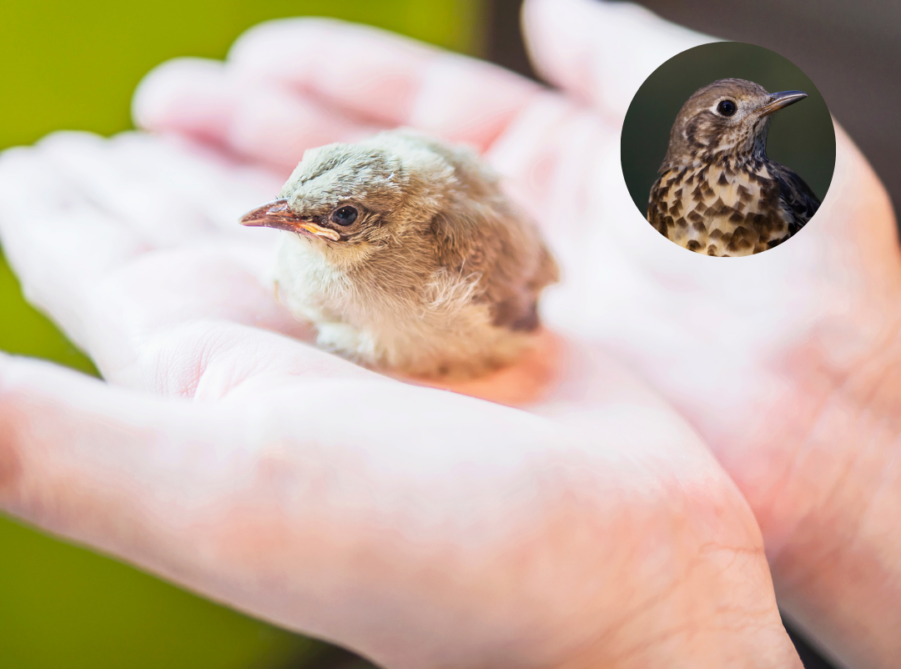Every spring I hear from readers about finding baby birds outside. Finding an unexpected and seemingly helpless baby bird in your backyard or a nearby park can be worrisome. After all, the little things typically can’t fly yet and look very vulnerable. Sometimes you might find such a bird in a place that is dangerous. There might be cats around, or they are sitting in the street or on a sports field or somewhere else that they might get trampled. Committed nature-lovers want to help, but are worried about causing more harm than good. People sensibly ask, “if I touch a baby bird, will its mother reject it?”
This is a widespread notion in bird conservation circles. But is it actually true? Is it always bad to handle baby birds? Is it okay to handle baby birds sometimes? In this Biologist Ruins Everything post, let’s get to the bottom of these questions and give some broad advice on baby birds in the outdoors.
How do you know if a baby bird needs help
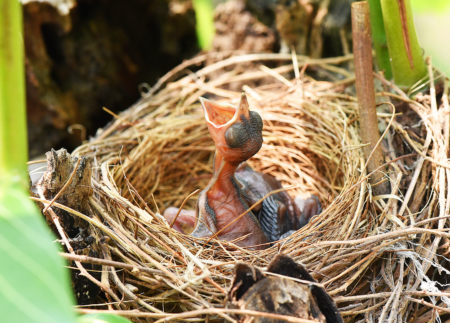
Some types of birds have altricial young, which are particularly helpless-looking babies. You can read much more about the different kinds of baby birds in my post about baby crows and how to identify them. If you come across a baby bird and are concerned about it, I recommend taking a first look at my comprehensive guide to unexpected encounters with the young of our feathered friends:
What should you do if you find a baby bird?
The most important things to consider when you find a baby bird are:
- Are mom and dad around?
- Are there any visible injuries?
- Is there an immediate threat to the animal?
Check if the baby bird’s parents are around.
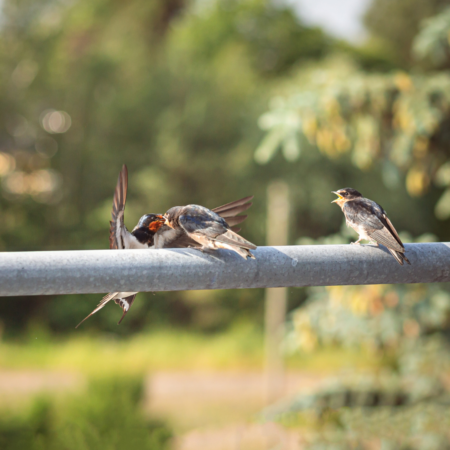
Finding out if parents are nearby can be tricky. Since adult birds can be shy, you may have to distance yourself from the youngster and still keep an eye on it to see if they return. With some species like mockingbirds, they will be quick to let you know they’re around. Defensive parents like them will scold you aggressively if you come near offspring. In fact, I’ve been bopped on the head by concerned parents of some species while doing my research as conservation biologist! If parents don’t show up within 10-15 minutes, you might be dealing with an abandoned bird.
Look for visible injuries.
Visible injuries are easy to detect; using a good pair of binoculars, you should be able to see if the bird is bleeding or has any broken bones. If it is sitting askew or unresponsive, there’s reason to be concerned!
Assess the potential for danger from “unnatural” sources.
There are a number of potential threats that might necessitate intervening for a baby bird’s safety. If it is being actively attacked by something like a housecat, that certainly could warrant your help. Other factors, like high temperatures, or passing foot or vehicle traffic, are also a good reason to try and help out. On the other hand, attacks from “natural” predators like native species of snakes or raptors may simply be the workings of the local ecosystem. In those circumstances, from an environmental point of view, it might not be necessary or recommendable to interfere.
Can birds smell if you have handled their babies?
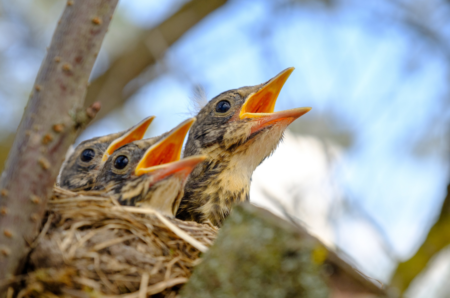
Of course, even if you are able to get a baby bird out of a potentially dangerous situation, another major concern comes after their rescue. Will the birds’ parents still accept it if it has been handled by a person? Many people ask me if adult birds can smell that a person has touched one of their chicks. The short answer is no: first, most bird species have a relatively poor sense of smell. In this way, they are different from many mammals (think of dogs!) that have a very strongly developed smell sense. Secondly, birds don’t tend to use olfactory (smell-related) cues to identify which offspring are theirs.
A major consideration here is that parent birds have very strong instincts for taking care of their chicks. So much so, in fact, that sometimes they will take care of baby birds that aren’t theirs! This is a major factor in the success of nest parasites, birds that lay their eggs in other parents’ nests. Because the instinct to care for babies is so strong in breeding adult birds, others can take advantage of them. Famously, the Common cuckoo (Cuculus canorus) of Eurasia and Africa lays its eggs in the nests of other birds. This can result in comically large, aggressive baby cuckoos crowding out the host parents actual offspring and taking all the food for themselves!
The bottom line: adult birds have strong parental instincts and do not use smell to identify their babies. If you handle a baby bird to get it out of a dangerous situation, its parents will not likely reject it because of your intervention.
What are the risks of handling a baby bird?
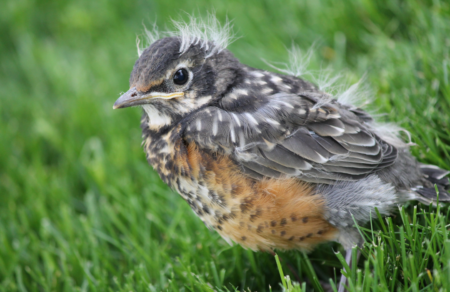
It is nonetheless important to consider whether handling a baby bird is necessary and whether it results in additional risk for the chick. Above all, do not handle a baby bird for any reason other than to get it out of a dangerous situation. During key points in a young bird’s development, the parents will leave them alone for short periods of time, even while they are flightless. This fledgling stage is absolutely a vulnerable point in their lives, but the parents typically have the situation under control. Moving a young bird, especially moving it a long distance or bringing it inside, does create a risk that the parents will lose track of it.
What to do if you find a bird nest at your home
Because of this, you should never handle or move a chick or fledgling unless it is clearly in immediate danger. If you do feel like there is an immediate risk, see my guide for what to do if you find a baby bird to get a plan of action.
What makes adult birds abandon their babies?
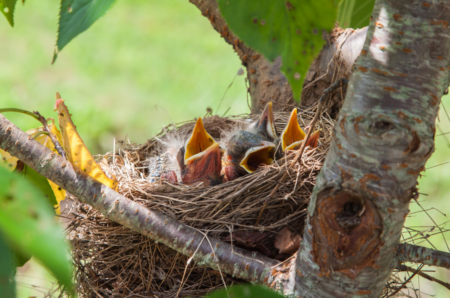
Although it seems harsh, many bird parents benefit from abandoning their young under certain circumstances. While abandoning their young reduces their chances of passing on their genes to the next generation, it can also mean putting themselves in danger. Ultimately, it is better for them to survive to try and nest again than it is to risk their lives and lose any chances of future reproduction. Because of this, birds will in uncommon situations abandon their young.
Generally speaking, the older the young are, the less likely the parents are to abandon them. That is, up until the young are old and large enough to fend for themselves, in which case many bird parents will up and leave, knowing that their offspring will be O.K. This means that parent birds are most likely to abandon at the nesting stage. The further they get into this process, the less likely they are to abandon. When baby birds have left the nest (a process called fledging), the parents are typically very invested and not likely to leave them.
However, if you disturb birds building a nest, particularly before they have laid eggs or before those eggs have hatched, they are much more likely to leave. So be careful! You can find more in my guide on what to do about bird nests at your home.
Thanks for reading!
If you enjoyed this post, please support Gulo in Nature by sharing with friends and connecting with us on Social Media. If you have other nature and animal myths you’d like busted, let us know using the Contact page. Until next time!

